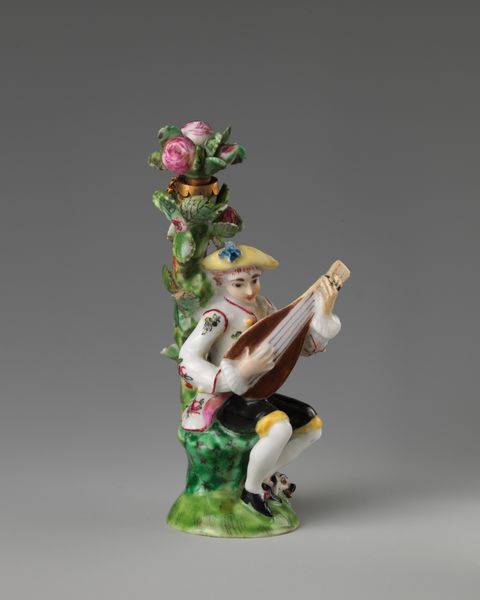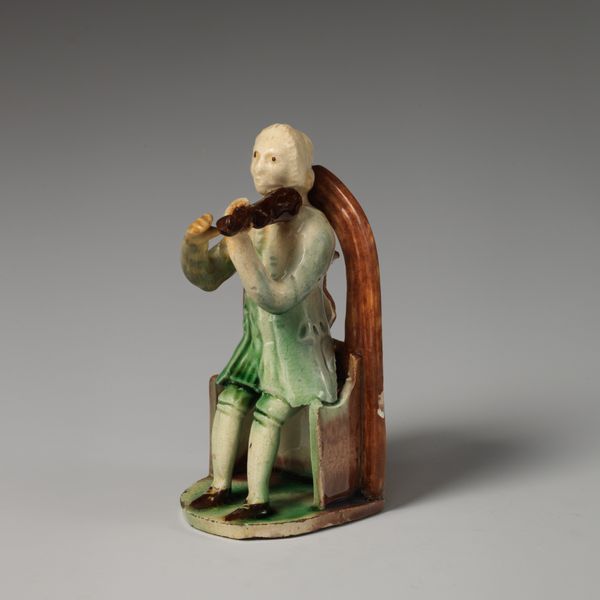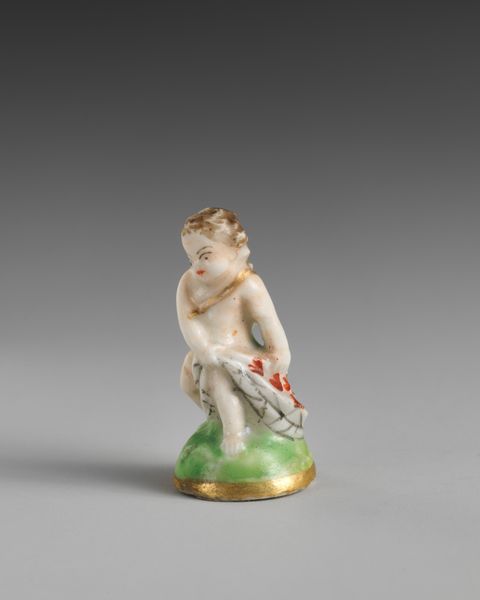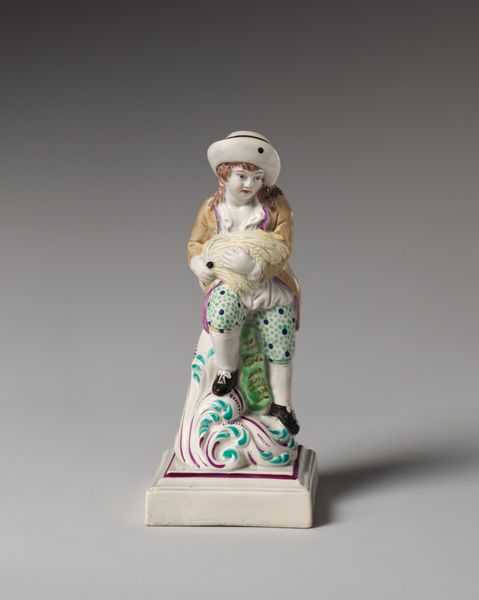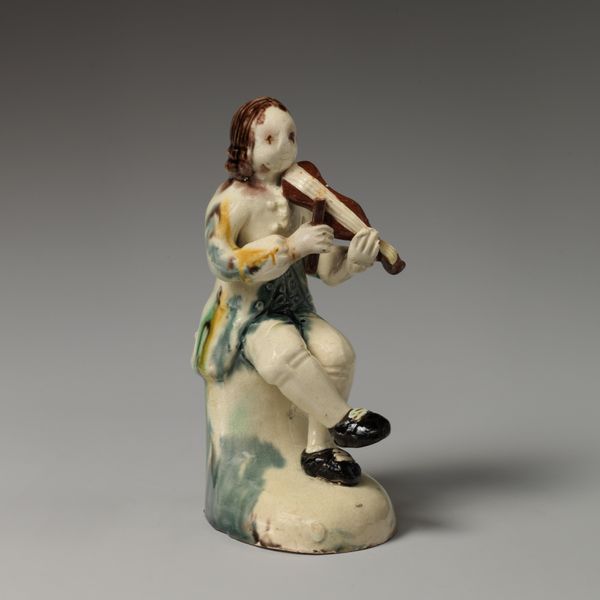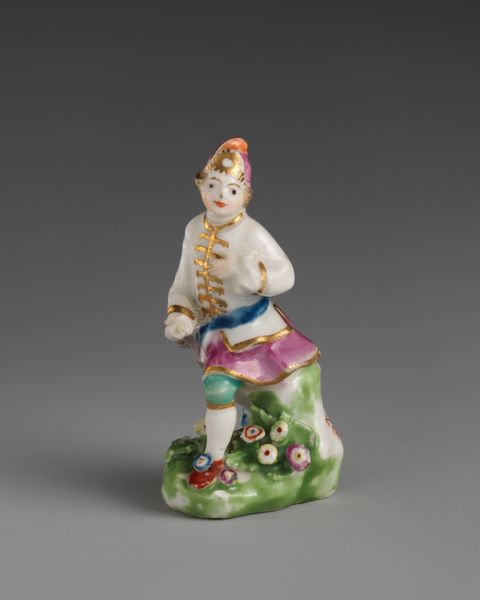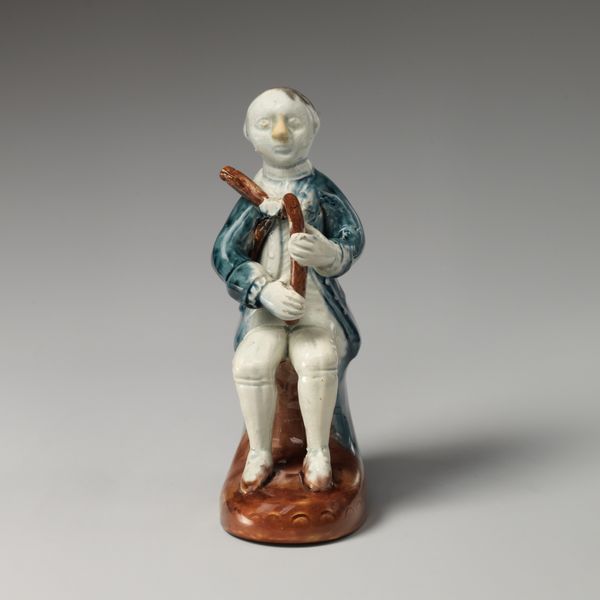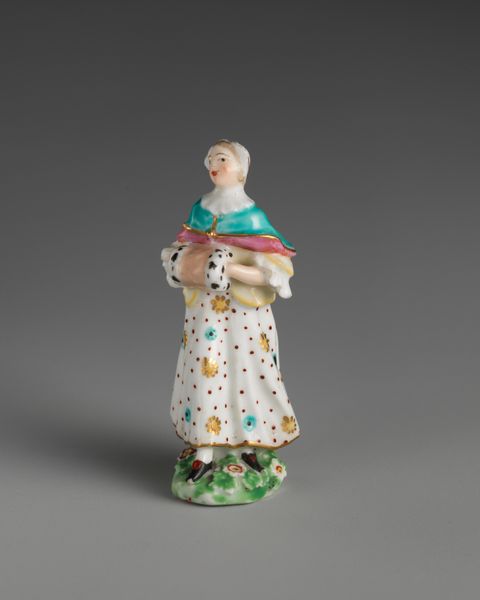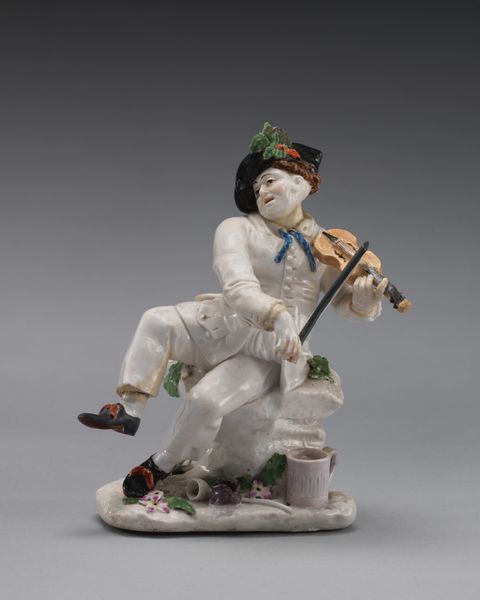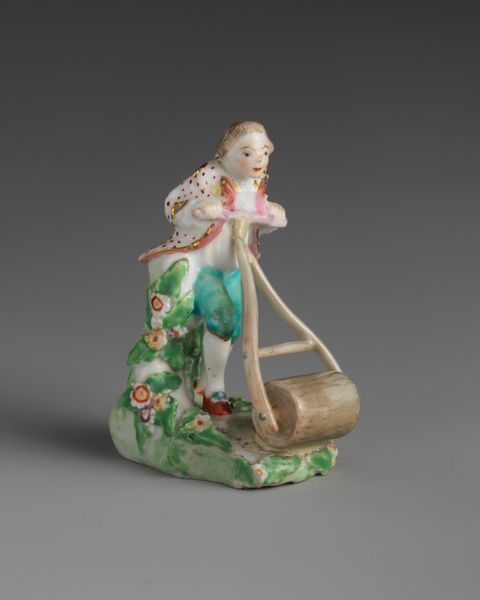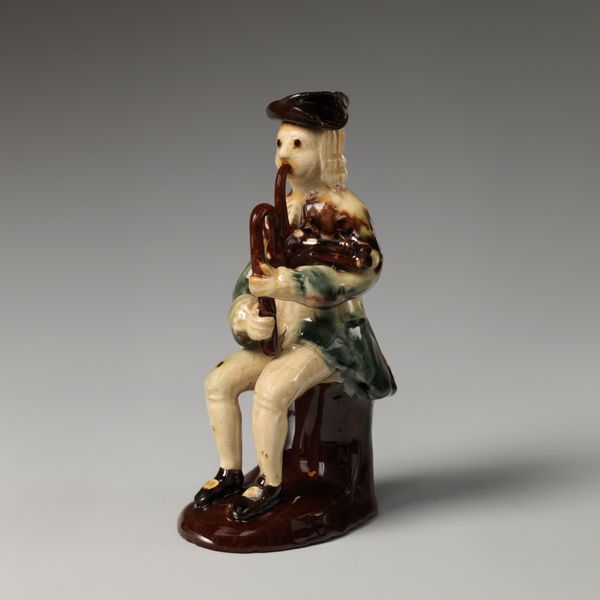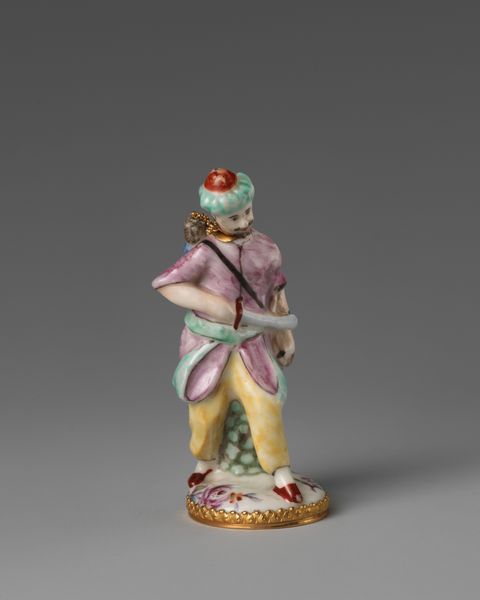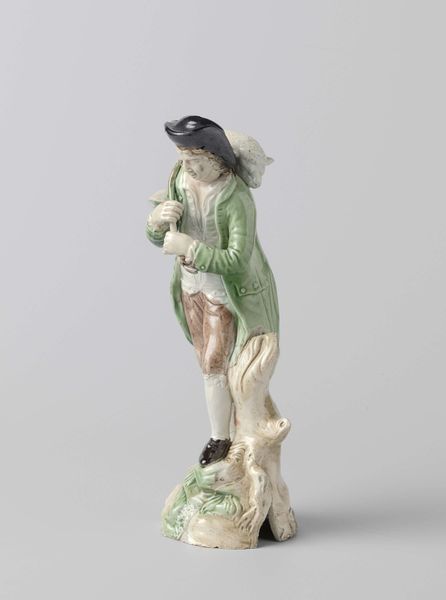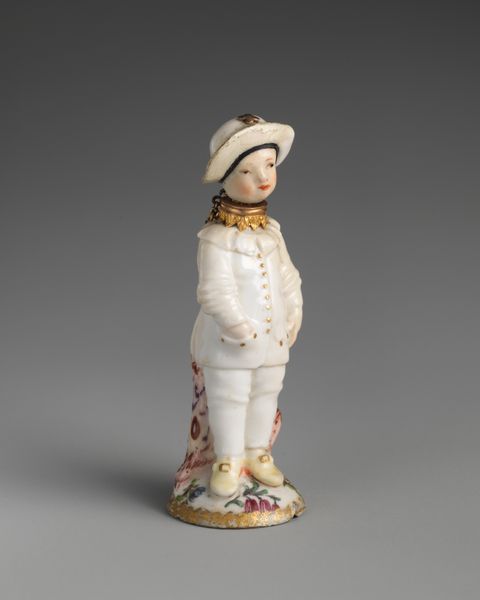
ceramic, sculpture
#
ceramic
#
figuration
#
sculpture
#
genre-painting
#
decorative-art
#
rococo
Dimensions: Height: 5 1/4 in. (13.3 cm)
Copyright: Public Domain
Editor: Here we have the "Fiddler," a ceramic sculpture made around 1745-1755, crafted by Astbury-Whieldon. It's charming! There's something almost humorous about his concentrated expression and the rather rustic execution. What do you see in this piece, considering its time and place? Curator: It’s interesting to consider its production in relation to the rising middle class and their aspirations. This figure, while seemingly a simple genre scene, becomes significant when viewed through the lens of social climbing and the democratization of art. Ceramic figurines like these were much more accessible than large-scale paintings for bourgeois families. Do you see how the Rococo style is expressed, albeit in a somewhat folksy way? Editor: Yes, I see the attempt at elegance in his clothing and posture. So, this wasn't about high art for the elite, but about something more broadly consumed and aspired to? Curator: Exactly! These figures brought fashionable tastes into the homes of those who previously wouldn't have had access. What does the theme of music tell us? The performance implies cultivated gentility, now made accessible, reproduced in a medium that brought visual, three-dimensional expression into daily life for an expanding market of consumers. Editor: That's a really fascinating point. So, it’s not just a charming figure; it’s a symbol of shifting social dynamics made accessible. Curator: Precisely. The museum's act of displaying such a figure further reinforces how previously dismissed art now provides vital insight into historical cultural values. We’re re-evaluating the narrative of art history. Editor: I’ll definitely look at decorative arts differently now! Curator: Hopefully this illuminates that artistic meaning evolves with cultural perception.
Comments
No comments
Be the first to comment and join the conversation on the ultimate creative platform.
